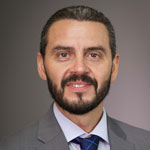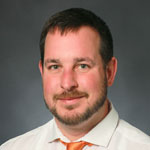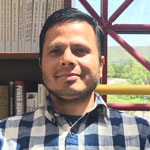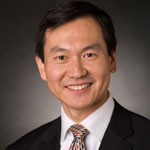The EMS Energy Institute welcomes the following new members who have joined the Institute since our last publication.
 James Adair
James Adair
Professor
Department of Materials Science and Engineering
Adair is a professor of materials science and engineering, biomedical engineering, and pharmacology. He received his B.S. in chemistry and M.S. and Ph.D. in materials science and engineering, all from the University of Florida. His research focuses on concepts and principles embedded in colloidal and interfacial chemistry with an aim toward nanomedical applications.
 Grace Choi
Grace Choi
Financial Assistant
EMS Energy Institute
Choi joined the institute in August 2019 as a financial assistant. She moved from California to State College in July 2018. Prior to joining the institute, Choi worked for the Penn State Conference Services and Commons Desk Operations as a staffing assistant. Choi holds a B.S in international business.
 Sharon Huang
Sharon Huang
Associate Professor
Huck Institutes of the Life Sciences
Huang is an associate professor of information sciences and technology. She received her B.Eng. in computer science from Tsinghua University and M.S. and Ph.D. in computer science from Rutgers University. Her research focuses on biomedical image data analysis, computer vision, machine learning, computer graphics and visualization, and data mining.
 Athanasios Karamalidis
Athanasios Karamalidis
Assistant Professor
John and Willie Leone Family Department of Energy and Mineral Engineering
Karamalidis is an assistant professor in energy and mineral engineering. He received his B.S. in chemistry from the University of Crete and his Ph.D. in environmental engineering from the Democritus University of Thrace. His research includes energy and the environment; resource recovery; geochemistry of rare earth elements; shale gas operations geochemistry; geochemical phenomena under carbon dioxide sequestration conditions in geologic formations, groundwater, and shallow aquifers; water chemistry; fate and transport of chemicals in water, soil, and sediment; in-situ and ex-situ soil and sediment treatment; hazardous waste site remediation; and geochemical modeling of aquatic systems.
 Sean Knecht
Sean Knecht
Assistant Teaching Professor
School of Engineering Design, Technology, and Professional Programs
Knecht is an assistant teaching professor in the School of Engineering Design, Technology, and Professional Programs. He is the leader of the Low-Temperature Plasma Science and Engineering research group at Penn State that focuses on the fundamental science and applications of atmospheric-pressure and in-liquid plasma sources including plasma-assisted catalysis, materials treatment, water treatment, plasma-assisted ignition and combustion, and biomedical applications. His other areas of interest and expertise include high-speed imaging, spectroscopy, and biomedical optics.
 Raju Kumal
Raju Kumal
Postdoctoral Scholar
John and Willie Leone Family Department of Energy and Mineral Engineering
Kumal received his Ph.D. in physical chemistry from Louisiana State University in 2017, where he studied nanoparticle-based drug-delivery systems using non-linear laser spectroscopy. He worked as a visiting assistant professor at Georgia Southern University before joining Penn State. His current research focuses on synthesis, characterization, and applications of carbon-based nanomaterials such as graphene and conductive carbon black for potential applications in electronics, paints, and batteries. Additionally, his work focuses on the impacts of fuel chemistry on the combustion dynamics and the formation of particulate matter from aircraft engines. Kumal is advised by Randy Vander Wal, professor of energy and mineral engineering, materials science and engineering, and mechanical engineering.
 Jennifer Matthews
Jennifer Matthews
Communications Specialist
EMS Energy Institute
Matthews joined the institute in July 2019 as a communications specialist. She is a communications professional with more than nine years of diverse writing and editing experience. She also has background in science writing, feature writing, design, photography, multimedia, website development, and marketing. Prior to the institute, she worked in Penn State’s College of Engineering for five years as a communications strategist. Matthews holds a B.A. in print journalism and a B.A. in English literature.
 Feifei Shi
Feifei Shi
Assistant Professor
John and Willie Leone Family Department of Energy and Mineral Engineering
Shi is a Virginia S. and Philip L. Walker Jr. Faculty Fellow and an assistant professor of energy engineering. Shi’s research interests lie broadly at the intersection of surface chemistry, materials science, and mechanical engineering, with an emphasis on integrated energy systems including innovation in conversion, storage, transport, and consumption systems. She holds a B.S. in chemistry from Fudan University, China and a Ph.D. in mechanical engineering from the University of California, Berkeley. Before joining Penn State in August 2019, Shi was a postdoctoral researcher in materials science and engineering at Stanford University.
 Hilal Ezgi Toraman
Hilal Ezgi Toraman
Assistant Professor
John and Willie Leone Family Department of Energy and Mineral Engineering
Toraman is a Virginia S. and Philip L. Walker Jr. Faculty Fellow and an assistant professor of energy engineering and chemical engineering. Prior to joining Penn State, Toraman served as a postdoctoral researcher with the Delaware Energy Institute at the University of Delaware. Toraman’s research is in the field of chemical reaction engineering with a focus on developing new processes, materials, and technologies for efficient and sustainable use of energy resources such as shale gas, biomass, and plastic waste. She received her B.Sc. and M.Sc. in chemical engineering from Middle East Technical University, Turkey and her Ph.D. in chemical engineering from Ghent University, Belgium.
 Meng Wang
Meng Wang
Assistant Professor
Environmental Systems Engineering
Wang is an assistant professor in environmental systems engineering. Wang received her B.S. in environmental engineering from Zhengzhou University, China, her M.S. in environmental engineering from Xi’an Jiaotong University, China, and her Ph.D. in civil engineering from the University of Massachusetts Amherst. Her research focuses on environmental biotechnology for pollution control, resource recovery, and environmental sustainability. She combines physical-chemical processes with biological processes to improve system stability and resource recovery efficiencies. Her research uses experimental work and mathematical modeling to guide the design and operation of treatment systems. She is interested in developing innovative food-energy-water systems for resource recovery, public health, and food security.
 Ming Xiao
Ming Xiao
Associate Professor
Civil Engineering
Xiao is an associate professor in civil engineering. He holds a B.S. in civil engineering from Shandong University, China, an M.S. in civil engineering from Zhejiang University, China, and an M.S. in computer science, and Ph.D. in civil engineering from Kansas State University. His research interests include performances of civil infrastructures and permafrost coastal erosion and its remediation due to permafrost degradation in the Arctic and their sociodemographic impacts; performances of the built environment and infrastructure under in-service conditions and extreme events; and seepage and erosion.

